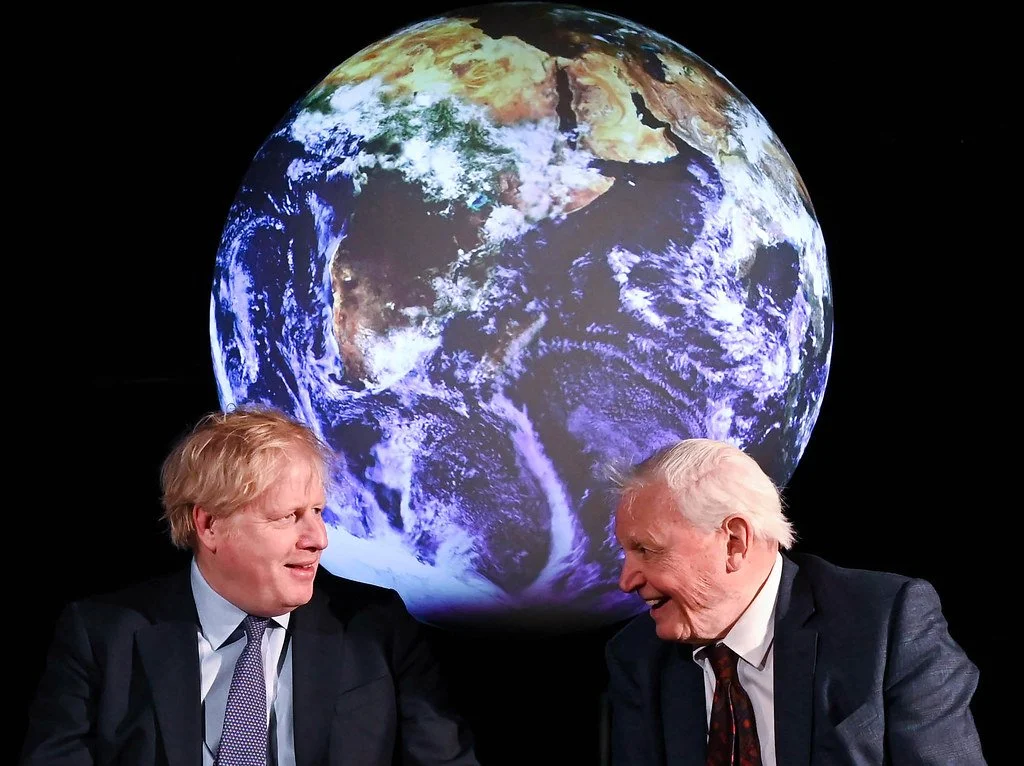Photo Courtesy of Flickr
By Helen Gloege ’23
Staff Writer
The 26th Conference of the Parties, also referred to as the COP26, was held from Oct. 31 to Nov. 12 after being delayed for a year due to the COVID-19 pandemic. The COP was created by the U.N. Framework Convention on Climate Change, a treaty signed in 1992, according to New Scientist. This year’s conference took place in Glasgow, Scotland, in partnership with Italy, where pre-COP events were held, according to the COP website. The COP26 is part of multiple larger U.N. treaties, including the COP, the Kyoto Protocol and the Paris Agreement, which was created during the COP21, according to the COP26 final briefing. The Washington Post reported that nearly 200 countries were involved in the COP26. It brought nations together to focus on mitigating climate change and preventing warming over 1.5 degrees Celsius. However, from Al-Jazeera to CNBC, many major news publications have expressed that the COP26 failed to develop concrete plans to reach that goal.
According to a recap from CNN, key points of discussion at the COP26 centered around ending deforestation, financing fossil fuels abroad and coal use, reducing methane emissions and determining which countries should pay what amount to address the climate crisis. CNN also reported that the COP26 agreed to “end and reverse deforestation and land degradation by 2030.” At least 25 countries have signed an agreement to end financing of all fossil fuel projects abroad, which “effectively cuts all public funding for coal plants,” according to CNN’s interview with Christine Shearer of the Global Energy Monitor. This agreement will decrease economic opportunities for future oil and gas projects.
The COP26 also resulted in specific targets to “phase-down of unabated coal power,” according to the COP26 debrief. CNN reported that the timeline for this “phase-down” is the “2030s for developed countries and the 2040s for developing countries.” According to the article, over ten years ago, “wealthy nations agreed to transfer $100 billion a year, starting in 2020, to the developing world to address the climate crisis.” This money would help developing nations transition to renewable energy and adapt to the effects of climate change. This year at the COP26, the Adaptation Fund reached over $350 million, based on the debriefing. In an article for The Conversation, a former senior U.N. official wrote that the COVID-19 pandemic has caused economic issues that have prevented the governments of wealthy nations from providing these funds. The article also stated that the U.N. Environmental Program estimated that funds put towards climate change adaptation would need to increase four-fold due to the current magnitude of the impacts of climate change.
The United States and the European Union collaborated on the Global Methane Pledge “to cut emissions by 30 percent from 2020 levels by 2030,” according to CNN. Various parties signed onto this collaboration during the COP26.
In addition to the attendance of many countries, many activists attended and protested the COP26. According to CNBC, in the wake of the conference, activists such as Greta Thunberg and Vanessa Nakate have said that the COP26 has not done enough. The article stated that Thunberg spoke at a Fridays for Future event in Glasgow, calling the event “a failure” and “the most exclusionary COP ever” that “has led us nowhere.” Nakate joined Thunberg in calling for further action, adding, “We need to continue holding leaders accountable for their actions.”
Others have echoed similar sentiments to Thunberg and Nakate, expressing dissatisfaction with the COP26. CJ Polychroniou wrote in an opinion piece for Al-Jazeera that the results of the COP26 showed “that people should not expect international climate summits or governments to solve the climate crisis.” The article pointed to how the words spoken at the COP26 do not live up to actions taken. Polychroniou specifically called out Biden for speaking at the COP26 about how the United States will lead the fight against climate change, and then, a few weeks later, auctioning new oil and gas leases in the Gulf of Mexico. However, Polychroniou said there is still room for hope, pointing to the work of cities in Europe, Latin America and the Caribbean who are developing their own climate plans in addition to individual projects going on across the globe. He sees a benefit in climate activism as “behind the support for green transition programs” and sees activism and smaller-scale actions at the city and town level as the answer to the climate crisis, rather than efforts like the COP26.
The next COP will take place in November 2022 in Sharm el-Sheikh, Egypt, according to The Conversation. Future COPs will likely center around adaptation to climate change and mitigation, in contrast to prior years that centered only on mitigation.

